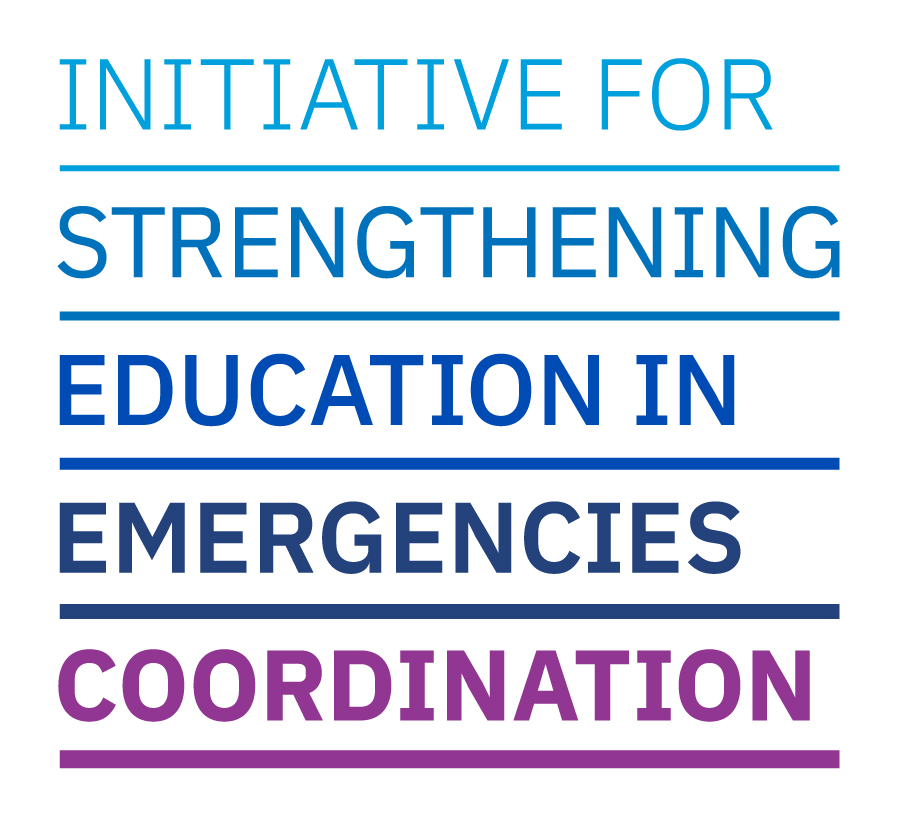Request support on coordination, information management, capacity development or other education in emergencies areas.
Demande de soutien en coordination, gestion de l’information, développement des capacités et autres domaines de l'éducation en situation d'urgence.
لطلب الدعم في مجال التنسيق ، إدارة المعلومات ، تنمية القدرات أو في اي مجال من مجالات التعليم في مناطق الطوارئ
Solicitar apoyo en coordinación, gestión de la información, desarrollo de capacidades u otra áreas en educación en emergencias.
What is ISEEC?
The Initiative for Strengthening Education in Emergencies Coordination (ISEEC) is a partnership launched by the Global Education Cluster (GEC), the UN Refugee Agency (UNHCR) and the Inter-agency Network for Education in Emergencies (INEE) to promote coherent, joined up education sector coordination that improves education outcomes for crisis-affected children and youth through existing organizational platforms.
Read the new report "Education in Emergencies Coordination: Harnessing humanitarian and development architecture for Education 2030" available in English, French, Arabic and Spanish to learn more.
With complex and protracted crises affecting more lives than ever in recent history, identifying and promoting ways to help children maintain education is an urgent priority. Strong coordination is integral for an effective, efficient and agile response to growing education needs of children and youth in humanitarian contexts.
Recognizing this, the GEC, UNHCR and INEE joined together in 2017 through the Education Cannot Wait funded Global Partners Project to strengthen joined up education coordination during emergencies by developing global public goods. Working with the Overseas Development Institute, this project built a comprehensive evidence base for improved education in emergencies coordination by mapping what does and does not work in joint education planning and response across a wide-range of emergencies and protracted crises.
Through this project, the Overseas Development Institute was commissioned to develop an evidence base and recommendations to strengthen joint coordination, planning and response, which was used to inform the development of ISEEC. Additionally, the project provided structured opportunities for dialogue, exchange and collaboration between the three partners, resulting in a joint pledge made by the GEC, UNHCR and INEE at the 2019 Global Refugee Forum, committing to continue working together to strengthen coordination for education for refugees and all crisis-affected children and youth. While the project concluded in 2020, the GEC, UNHCR and INEE will continue to work together to advance our joint pledge through ISEEC. UNESCO jointed the ISEEC partnership in 2023.
What will ISEEC do?
Key learnings and findings from the Global Partners Project revealed the overarching coordination challenge for the decade ahead is the need to better connect IDP and refugee coordination systems as well as collaboration between humanitarian and development actors. Reflecting on this, the new report Education in Emergencies Coordination: Harnessing humanitarian and development architecture for Education 2030 outlines two key recommendations to enhance sectoral coordination to better meet education needs:
- Join up education cluster and refugee education coordination in mixed and complex settings and commit to finding solutions so that all crisis-affected children and youth can access safe, quality education.
- Connect education in emergencies to the national education sector through systematic engagement between humanitarian and development coordination mechanisms, promoting humanitarian principles, enhancing the quality of education in emergencies responses and contributing to crisis-ready education systems.
These recommendations can only be addressed through joint efforts and partnership bringing sectoral coordination and technical network leads together to work across architectural, institutional and historical divides. Through ISEEC, the GEC, UNHCR, INEE, and UNESCO will champion partnership and collaboration across the coordination systems, focusing on practical steps to advance five key actions:
- Build shared understanding and acceptance of different education in emergencies coordination systems and ways of working
- Introduce structural and systemic opportunities for dialogue, exchange and collaboration
- Allocate time and resources for joined-up coordination and streamlined planning processes
- Join up coordination at preparedness stage and from the very start of a response
- Invest in communication, exchange and capacity building between global, national and sub-national education in emergencies coordination systems
Under ISEEC, the partners will work together to mainstream collaborative approaches at global level and promote joined-up education in emergencies coordination at national and sub-national levels. This will be done through joint technical support to country coordinators and teams in mixed and complex settings, and by disseminating and mainstreaming education in emergencies coordination content and key messages in training, workshops and advocacy opportunities. Joint workplans will be developed as needed and will conduct an annual review of progress towards our Global Refugee Forum pledge on joined-up coordination.
How can education in emergencies partners get involved?
ISEEC’s goal of coherent, joined up education sector coordination can only be achieved with the full support and commitment of all education stakeholders, including governments and Ministries of Education, Non-Governmental Organisations, development and humanitarian actors, and donors. Stay tuned for more information on how you can engage with ISEEC.

